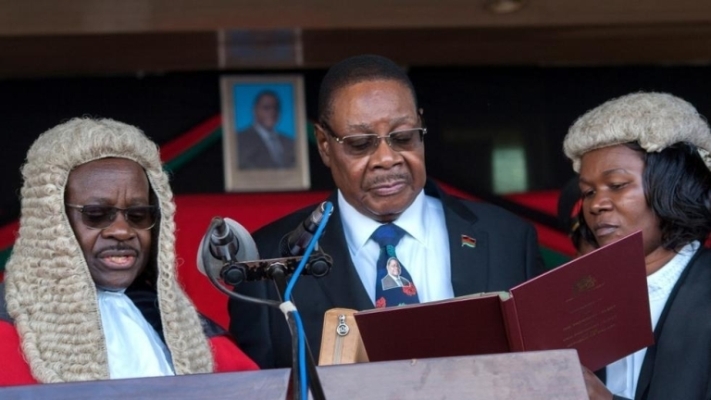The Constitutional Court on Monday, February 3 cancelled the results of the presidential election of May 2019 and slammed the Election Commission for for conducting an election that was neither free nor transparent.
President Peter Mutharika was re-elected for a second term with just over 38% of the vote. The opposition immediately went to court and kept up the pressure by taking to the streets following accusations of fraud.
Reading the verdict – 500 pages – lasted more than 9 hours. The Constitutional Court finally concluded that in view of the numerous and significant irregularities noted, the result of this election is seriously compromised. Thus, the outgoing president Peter Mutharika was not ” duly elected “, decided the Court. The Court, therefore, cancelled the result of the May 2019 election and ordered a new ballot.
A new ballot will have to be organized within 150 days unless President Mutharika’s party appeals. He can.
“The Constitutional Court sitting in Lilongwe, Monday, February 3, 2020, cancelled the presidential election of May 21, 2019, and ordered the holding of new elections in 150 days. The Court also declared the status quo that existed before the elections concerning the presidency”, can be read on the Malawi government’s Twitter account.
Lilongwe, the capital, was calm on Monday with many shops remained closed pending the verdict and fearing violence.
The question at the centre of decision: the definition of the word “majority”
According to the highest court in Malawi, multiple mistakes have been made. But the most serious, in substance, concerns the definition of the word “majority”. For the Court, it was necessarily an absolute majority and not a relative majority. Clearly: Peter Mutharika never got the majority of votes.
Since 1994, the Malawi Constitution stipulates that the president is elected by a “majority” of votes. The Malawian courts have so far considered this to be a simple majority. This Monday, February 3, the Constitutional Court found them wrong.
According to the judges, the word “majority”, at least in English, necessarily refers to an absolute majority. In English, a completely different word, “plurality” means a relative majority. The Court’s decision, therefore, amounts to saying that the President-elect Peter Mutharika was not duly elected, neither he nor most of his predecessors who have not, since 1994, obtained an absolute majority of votes.
Opposition welcomes Constitutional Court decision
The Malawi Congress Party – the main opposition party – which came second in this election, with a difference of 159,000 votes, immediately appealed to the Constitutional Court, denouncing the abnormally high number of crossed out minutes. Monday evening, the opposition was successful and welcomed the ” fair trial ” of the Court.
A historic decision
Observers speak of a historic decision. This is the case of political scientist Boni Dulani, a professor at the University of Malawi. In his view, the decision of the Constitutional Court is a serious setback for the election organizers.
“The judges say that they do not allow themselves to be influenced by public opinion, but everyone knows that they do not live on the margins of society, either. Let me put things in context: demonstrations have been taking place since May, since the announcement of the presidential results, to denounce the organization of the poll. And this whole story is a terrible slap in the face of the Election Commission. The street wants the head of the president of the Commission. And the Constitutional Court has just proved him right. The judges explained that the Commission had gone astray. It is a real snub for its members. In my opinion, they must resign without further delay.”



